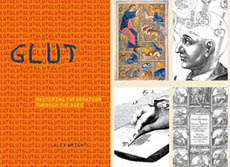Dark Star Safari
June 3, 2004
 Ever since I read The Great Railway Bazaar some twenty-five years ago (at age 12), I've been a fan of Paul Theroux's sharp eye, careful prose, and unfailingly snarky disposition.
Ever since I read The Great Railway Bazaar some twenty-five years ago (at age 12), I've been a fan of Paul Theroux's sharp eye, careful prose, and unfailingly snarky disposition.
Dark Star Safari finds Theroux at the peak of his powers, undertaking a long haphazard trip overland through Africa, starting in Cairo and ending up in Cape Town. Along the way, he gets shot at, robbed, diseased - or as he puts it, "Africanized" - as he journeys deep into the dark continent that most safari-bound tourists never see.
For Theroux, this is an autobiographical journey. He had worked in Africa as a Peace Corps volunteer in the 1960s; and here he reflects at length on the contrasts between then and now (concluding that things are, for the most part, much worse). He searches out old haunts, tracks down friends and colleagues, and encounters literary heavyweights like Egypt's Naguib Mahfouz and South Africa's Nadine Gordimer; it's during these vignettes that Theroux's literary ego, which he usually manages to hold in check, rears its unseemly head (my only serious criticism of the book).
Theroux makes plenty of hay concocting his trademark jibes about people he meets along the way, e.g.:
Theroux reserves a special kind of contempt for Western charitable aid workers, whom he seems to encounter forever driving around in their white air-conditioned Land Rovers, projecting an unbearable air of self-righteousness. Although once a Peace Corps volunteer himself, Theroux has come around to the view that Western aid is the most insidious - and ultimately destructive - force at work on the African continent.
In other words: Sally Struthers, Live Aid and Oxfam be damned - Western do-goodniks have done far more harm than good. Ostensible good intentions notwithstanding, Western charities giving food and money to "starving" Africans has done more to ruin the lives of ordinary Africans than all the Robert Mugabes and Idi Amins put together. Theroux points out that Africans were pretty well capable of fending for themselves for tens of thousands of years; but that sadly the effect of Western aid has been to create a self-perpetuating cycle of dependence that has disrupted the continent's human systems in horrific ways, with aid agencies, international institutions and African governments effectively colluding to keep people in poverty.
Ultimately Theroux's message is clarion: Western aid needs to cease and desist, and soon - and let Africa do for itself what it did for millennia past.
File under: Books
_____________________« Pema at the pulpit | De mortuis nil nisi bonum »
GLUT:
Mastering Information Through the Ages
New Paperback Edition
“A penetrating and highly entertaining meditation on the information age and its historical roots.”
—Los Angeles Times
